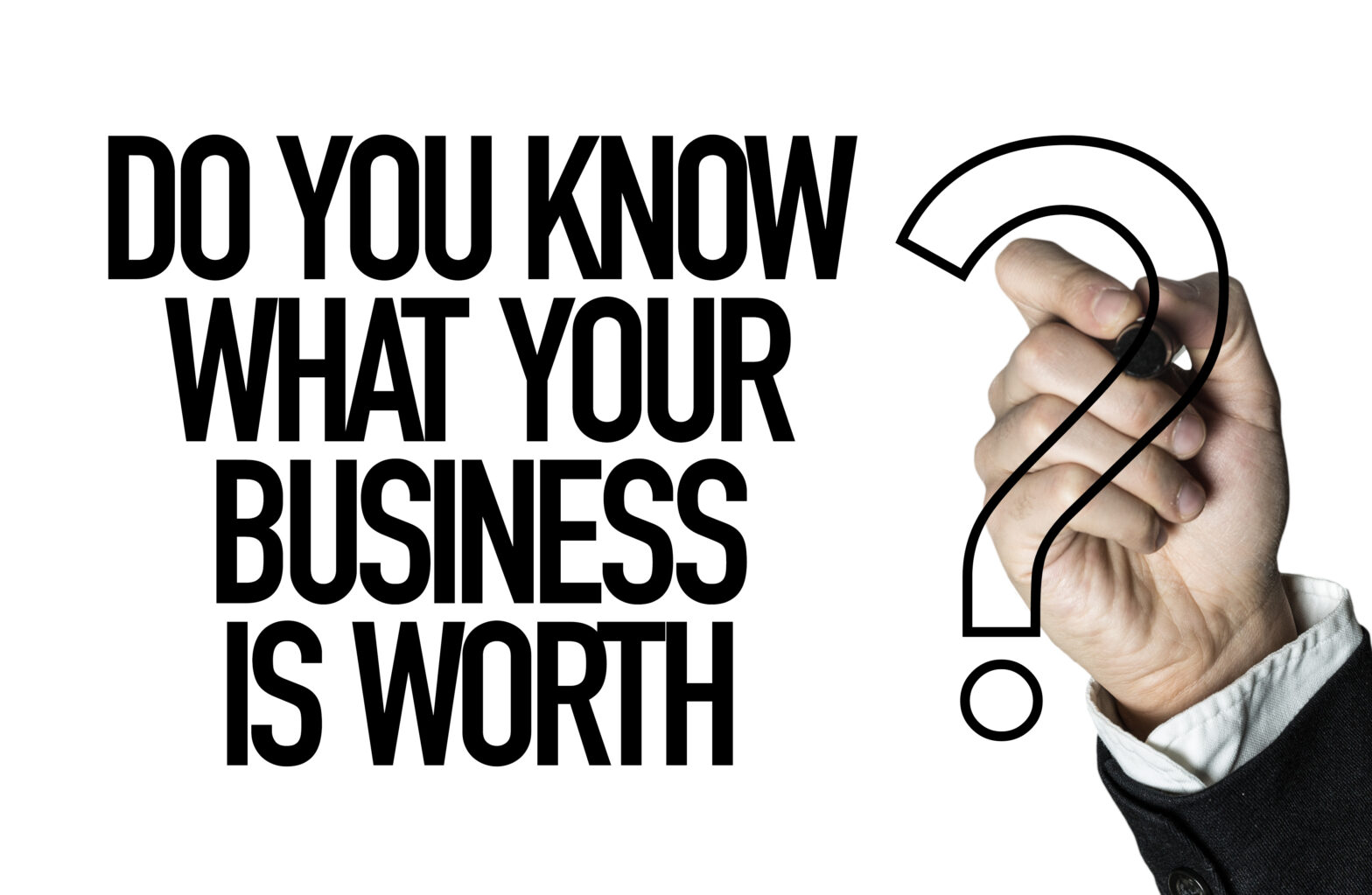With growth returning to the UK and the recovery seemingly holding, all business owners should take the time to understand what their business is really worth. Selling your business is likely to be the biggest financial transaction you will undertake, and it can be hard to be entirely objective when it comes to putting a price on the company you’ve built from scratch. So, is your business worth what you think it is?
Like home owners, many business owners have a private view of the value of their business. However, this is often based on an overly optimistic interpretation of the most favourable data they have come across. There are a number of tried and tested approaches to valuing a business; and an acquirer may go beyond the most transparent of metrics, particularly if you have accumulated intellectual property or assembled a particularly talented team of people.
In purely financial terms, the value of any business is the present worth of its future income streams. The most commonly used measure across most companies is EBITDA (earnings before interest, tax, depreciation and amortisation). A company’s valuation is typically based on a multiple of its historic and/or future EBITDA, the multiple being based on historic transactions or the valuations of publicly traded companies, operating in the same industry sector. The reason for choosing EBITDA is that it has long proved to be a reliable basis from which to compare true cash flow generation across different companies.
>See also: Employee Ownership Trust – another way for business owners to successfully exit
Business owners might be tempted to base the value of their firm on data from an index such as the BDO Private Company Index. The report’s most recent data for Q2 this year, shows the private company price index trading at an average of 10.2x EBITDA. This would suggest that if a business is generating £500,000 of EBITDA, that it should be worth around £5m. Since 2019 this index has been fairly consistent at around the 9.6-10.6x level.
Is an index accurate enough to help you value your own very specific private company?
An index may be viewed as too general a guide for SME valuation. To get an accurate place from which to start, you need to look at the specific sector the company operates in. A more granular approach will ultimately help you arrive at a valuation potential acquirers, investors or other stakeholders can take seriously.
Scott MacDonald, chief product officer of Pomanda, the company I am chairman of, told me: “UK software companies which typically have high profit margins and are highly scalable are currently trading at around 18x EBITDA, whereas UK food retailers with much lower profit margins are trading at around 12x EBITDA.”
What about the size and underlying performance of your company?
Looking at your sector’s specific public market valuation multiple is only the starting point. You need to accept that there are several discounts which any valuation expert will apply to this number to arrive at a defendable valuation:
- Since private company shares are illiquid, an initial “illiquidity” discount will need to be applied. This can be as high as 50 per cent, but is normally in the range of 20-30 per cent
- Since most private companies are significantly smaller than the public companies from which the public market multiple has been selected, then a further “size” discount of up to 20 per cent may need to be applied
- If the business in question is performing significantly below its sector average in terms of its operation performance, then a further “performance” discount may be applied. Comparing the business’s gross margin with its sector average can often provide a good indication of its relative performance
As you can see, taking these discounts on board, a food retailer might easily see its valuation discounted by 40-50 per cent, so that it would then be valued at 6-7x EBITDA not 12x. On a business generating £500,000 of EBITDA per year this means a valuation drop from £6m to £3-3.5m.
>See also: What is an earn-out – pros and cons of selling your business outright
Are these discounts for size and performance fair?
The reality is that larger companies have some inherent advantages, such as:
Order volumes: If you are a retailer that sources your products from international suppliers, then the larger the order you can guarantee them, the more you can drive down their prices. These economies of scale mean that in general larger companies can deliver better gross margins, which normally feed down into a higher EBITDA margin.
Operating costs: Similarly, economies of scale also impact operating costs, where there can be savings to be made for larger companies in terms of head office costs, sales and marketing.
Payment terms: When it comes to cash collection, larger customers can often extract more favourable payment terms from their customers and suppliers.
Accessing capital: Larger companies are generally able to borrow on more competitive terms, since banks view them as more stable and more likely to be able to repay their debts. Banks will look at things like customer concentration and very often smaller companies have a high proportion of their revenues dependent on one or two major customers, making them more vulnerable to sudden changes in revenue.
Finally, there are the more intangible advantages which larger businesses enjoy. Jonathan Brod, managing partner at Next Wave Partners, which provides growth capital for SMEs in the lower mid-market, told me that “larger SMEs are typically able to attract and hire greater depth in senior management”.
Brod notes that, “We’ve found over the years that a broad, quality senior team is more likely to be able put in place the processes, controls and analysis needed to maximise the company’s growth and help identify any barriers to growth well in advance.”
As an SME owner, how can you extract maximum worth from your business in the face of this valuation bias towards larger enterprises?
The reality is that you won’t be able to do this overnight, but there are some key steps you can take:
People: Invest in the best quality senior team you can afford, empower them and make sure they have skin in the game by creating an EMI options pool.
Process: Search out and invest in the best software to enable you to understand how your business is really performing, so you can hone in on where to spend your valuable time, ensuring you deliver on your plan.
Quality of earnings: Think about where you can scale your business more effectively; think about generating repeat revenues; think about diversifying your customer base.
If you still can’t improve your valuation enough, then earn outs are often a sensible way of bridging potential valuation gaps, especially if you are confident of your ability to deliver on forecast figures for the next couple of years. Typically you might look to be paid at least 50 per cent your target price upfront with the balance contingent on hitting certain financial or operational benchmarks over one to three years.
This can look appealing, but don’t forget that this will mean that you will have to go and work for your acquirer for the period of the earn out. This change of environment and loss of control doesn’t suit all entrepreneurs.
Is your business worth more to you than anyone else?
Finally, it may be that at the end of the day your company is worth more to you than anyone else. This is not uncommon in businesses which are relatively small but remain highly cash generative due to the owner/manager’s ability to manage them efficiently and develop long-term successful relationships with key clients.
A third party looking in at such a business may be concerned with the amount of expertise and IP tied up in the owner/manager and will look to discount any price offered to mitigate the perceived risk. When push comes to shove, you may decide that you’ll generate more value for yourself by running your business as a cash cow for the next five years, rather than selling yourself short today.
George Pennock is chairman of information platform Pomanda.com, which helps SME owners and managers increase the value of their businesses
Further reading on selling your business
How to sell your small business without a broker – Growth Business guide






